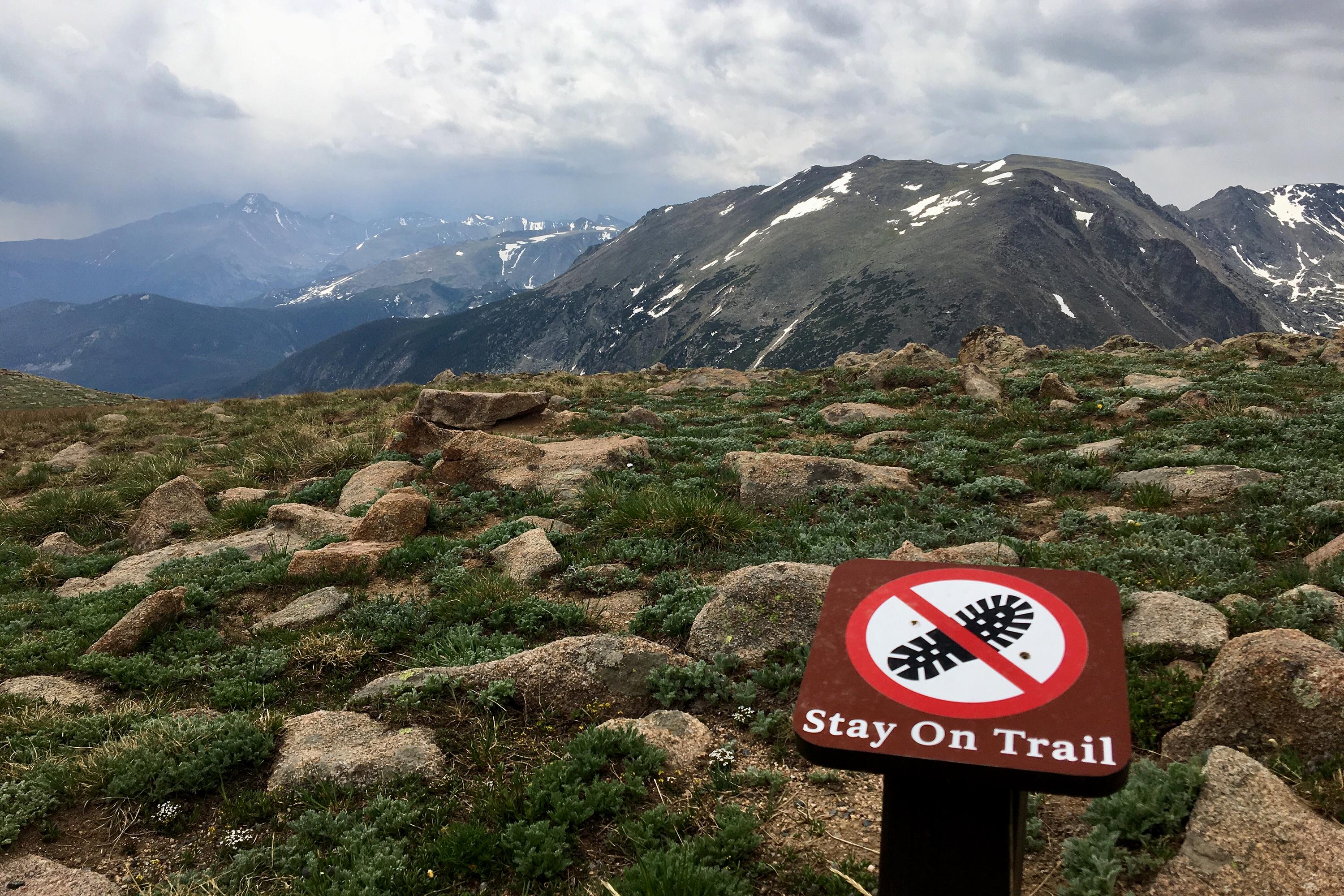

The nation’s national parks had 185 million visitors last year, including 4 million to Rocky Mountain National Park. But those guests likely experienced some rundown facilities.
Roads, bridges, trails, campgrounds and other infrastructure at 417 parks nationwide need almost $12 billion in services and the government can’t afford it.
In Colorado, $238 million worth of deferred maintenance, or services put off due to budget constraints, is needed at State and National parks. And at Rocky Mountain National Park, one of the country’s busiest, $84 million is needed, according to the National Parks Service.
John Garder is the senior director of budget and appropriations for National Parks Conservation Association. He said parks have done a commendable job making basic things like visitor centers look great for guests, but what visitors don’t see is the significant structural damage like deteriorating water and HVAC systems.
“At this point, it's well understood that you can't let this go on indefinitely. We’re at the point where they have started and certainly would start closing more and more facilities,” he said. “We’re at the point where the preservation of our historic heritage is at threat and if this were to continue we would see irreparable damage to some of our national treasures."
Finding money for repairs to all this decaying infrastructure has long been a challenge. Colorado U.S. Sen. Michael Bennet has now offered one possible solution. The Democrat is cosponsoring a bipartisan bill that would help allocate maintenance funds to parks nationwide. The so-called Restore Our Parks Act would collect $6.5 billion in revenue over the next five years from on and offshore energy production, his office said in a statement.
“For several years, we’ve seen the effects of chronic underfunding of our public land management agencies — and the National Park Service maintenance backlog is one of the most glaring examples,” Bennet said.
Several Republicans and Democrats support the legislation. So does Interior Secretary Ryan Zinke, who plans to visit Rocky Mountain National Park for the second time on Sunday. He is expected to address the need for Congress to take action and fix park infrastructure, according to a statement from his office.
At an event on Tuesday in Washington, D.C., Zinke highlighted the need to repair and rebuild national parks, saying the maintenance is neither a Democrat or Republican issue, rather an “American” one.
“Addressing the infrastructure needs of our national parks is an investment in their future and in ensuring they live up to their world-class reputation for generations to come,” he said. “As we continue to focus on increasing access to our public lands, we must address this great need because they go hand-in-hand.”
The cosponsorship is monumental because in the past, Republicans and Democrats have strongly disagreed on ways to fix the backlog.
“There are some unlikely allies on this bill,” Garder said. “There are members of congress on the left and on the right — on both sides of the aisle. Some of the names you don’t often see on the same bill and I think it really shows that the problem is well understood.”
Last fall, the Interior Department announced plans to nearly triple entrance fees at major national parks, including Rocky, to fund maintenance. The Interior only raised fees by $5 after receiving widespread backlash from officials and the public.
Zinke also proposed that private companies provide maintenance at campgrounds last year. And in January, Zinke wanted to increase on and offshore drilling on public lands to fund maintenance, which Democrats opposed, the Hill reported.
Colorado U.S. Sen. Cory Gardner, a Republican, also backs the bill.
“We are strong supporters of protecting these lands for the next generation and we know firsthand how important it is to make investments in our parks,” he said in a statement. “It is critical that we provide the funding necessary to help address the billions of dollars in deferred maintenance that the park system is currently facing in Colorado and across the country.”
The last time Congress looked at park infrastructure was in 1956. It’s financial support to NPS has decreased by 40 percent in the last decade. Staffing has also experienced an 11 percent decrease over the last few years, which Garder said he hopes Congress restores with the funding.
“It’s really a situation we haven't seen in decades,” he said. “We haven’t really seen any significant investment since then and these bills are a development that are really exciting and not the kind of thing we’ve been seeing.”
Several environmentalist groups like Pew Charitable Trusts’ restore America’s parks campaign, the Outdoor Industry Association and more back the legislation along with the National Parks Conservation Association.
Nationwide, visitors spent $18 billion in and around National Parks last year and almost $300 million at Rocky Mountain National Park alone.









